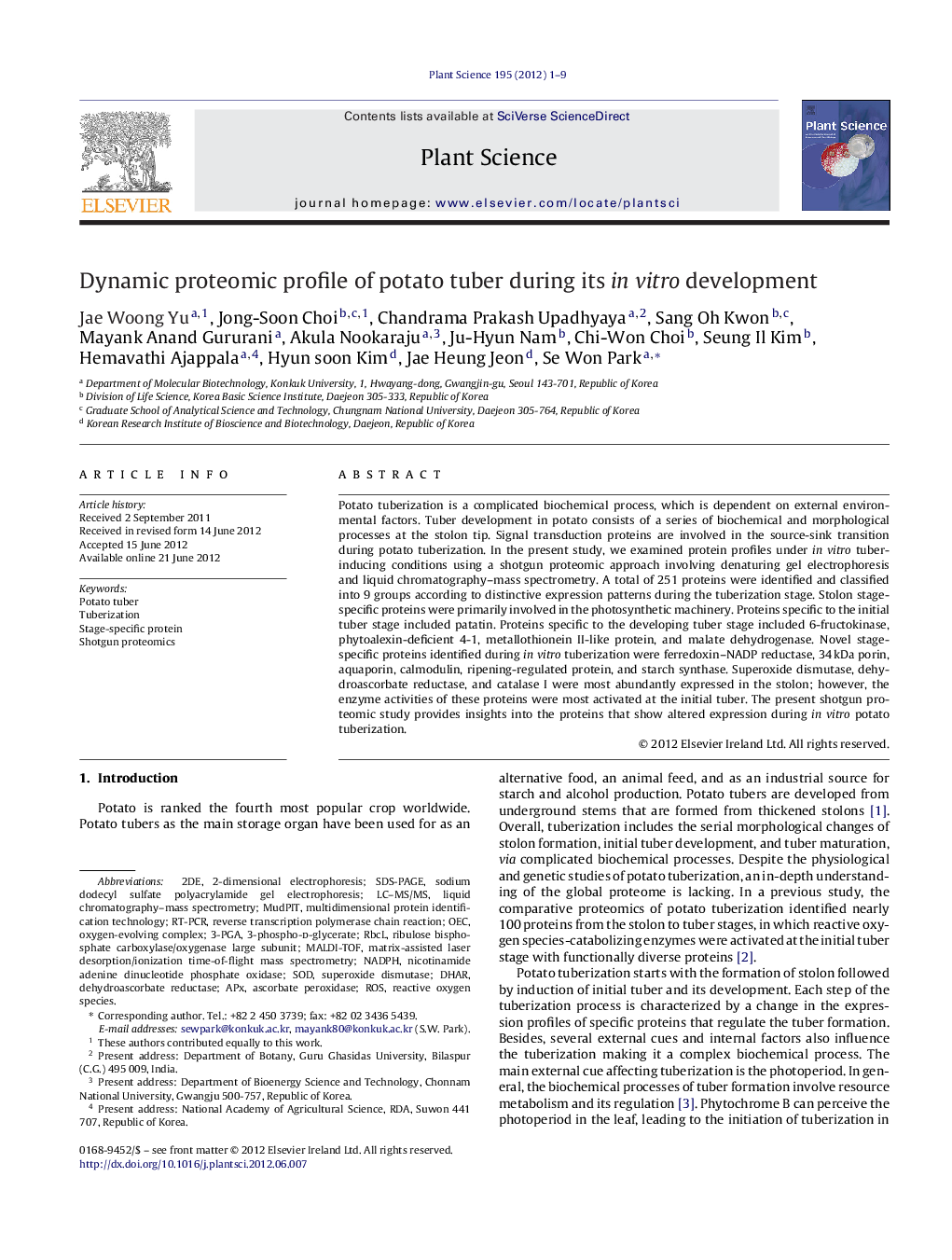| Article ID | Journal | Published Year | Pages | File Type |
|---|---|---|---|---|
| 2017350 | Plant Science | 2012 | 9 Pages |
Potato tuberization is a complicated biochemical process, which is dependent on external environmental factors. Tuber development in potato consists of a series of biochemical and morphological processes at the stolon tip. Signal transduction proteins are involved in the source-sink transition during potato tuberization. In the present study, we examined protein profiles under in vitro tuber-inducing conditions using a shotgun proteomic approach involving denaturing gel electrophoresis and liquid chromatography–mass spectrometry. A total of 251 proteins were identified and classified into 9 groups according to distinctive expression patterns during the tuberization stage. Stolon stage-specific proteins were primarily involved in the photosynthetic machinery. Proteins specific to the initial tuber stage included patatin. Proteins specific to the developing tuber stage included 6-fructokinase, phytoalexin-deficient 4-1, metallothionein II-like protein, and malate dehydrogenase. Novel stage-specific proteins identified during in vitro tuberization were ferredoxin–NADP reductase, 34 kDa porin, aquaporin, calmodulin, ripening-regulated protein, and starch synthase. Superoxide dismutase, dehydroascorbate reductase, and catalase I were most abundantly expressed in the stolon; however, the enzyme activities of these proteins were most activated at the initial tuber. The present shotgun proteomic study provides insights into the proteins that show altered expression during in vitro potato tuberization.
► A total of 251 proteins during tuberization in vitro were identified and classified into 9 distinctive expression patterns. ► Eight novel proteins were identified, containing aquaporin, calmodulin and DDTFR10 which expressed constantly throughout the tuberization in vitro. ► Photosynthesis-related proteins are most highly expressed at stolon. ► Proteins in carbon metabolism are mainly expressed at initial and developing tuber stage. ► ROS-metabolizing enzymes are expressed at specific tuber stage, showing a little difference of maximal expression compared to tuberization in vivo.
